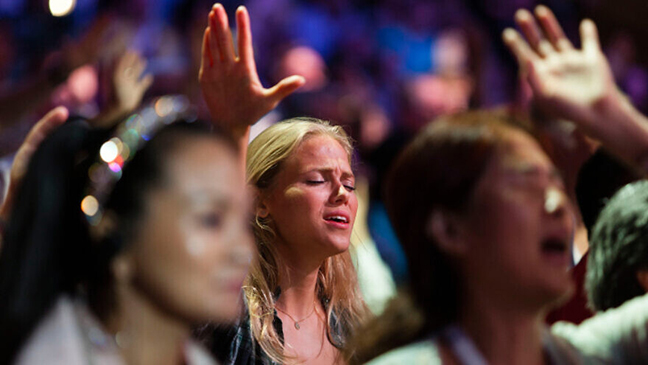Relations between Christians, Jews: Painful past can lead to promising future

Detail from a painting depicting blood libel in St. Paul’s Church in Sandomierz, Poland. Wikimedia Commons.
By Richard Friedman
The Times Of Israel posted a story recently, headlined “Church of England report admits Christian anti-Semitism helped lead to Holocaust.”
It is an extremely powerful article, worth reading. It deals with the oppressive and often deadly anti-Semitism that Jews have faced over the centuries.
The report maintains that in the past, attitudes toward Jews and Judaism have created a “fertile seed-bed for murderous anti-Semitism,” and that Anglicans and other Christians must seek forgiveness for the “sins of the past,” as well as commit to combating contemporary anti-Semitic attitudes and stereotypes.
At the end of this year, after 37 years as executive director of the Birmingham Jewish Federation, I will be joining the staffs of the Birmingham-based US Israel Education Association and Israel InSight magazine. USIEA is essentially but not exclusively a Christian organization, and I’ve been hired to, among other things, broaden the organization’s Jewish support, something USIEA would welcome.
Through this career transition, I’ve made many new Evangelical friends and have been deeply touched by those who have apologized to me for the horrible things done to Jews, including some of the atrocities reflected in the Church’s report.
One such woman, in fact, a new Evangelical colleague who had never had a Jewish friend to talk to, began our first-ever cup of coffee with tears streaming down her face and apologizing to me for the atrocities Christians had committed against Jews. It was a powerful moment; I could tell this was a burden that she had been carrying for some time.
My response to her, which is the same one I give to other Evangelical friends is, “YOU did not do those things, and while these atrocities and persecutions were committed in the ‘name of Christianity’, I do not believe they were committed by true Christians.”
It is from my discussions with this growing circle of Christian friends, that I have developed a better understanding of what it means to be a “true Christian“ — and for this I am grateful.
Recently, I was with two Christian friends I have known for years. We lamented that while many Christians have Jewish friends and vice versa, we rarely talk about the faith, cultural and philanthropic beliefs that are so essential to our respective lives. I explained that a goal for me, as I move into my new professional role, is to help create such conversations, so that we can love one another more fully while appreciating and honoring our differences.
We can’t go back in time but we can go forward. I believe that by sanctifying the present, we can triumph over the darkness of the past. This is our challenge, this is our destiny. And with anti-Semitism again rising, this is a perfect time to act.



